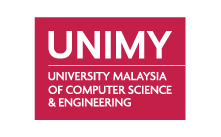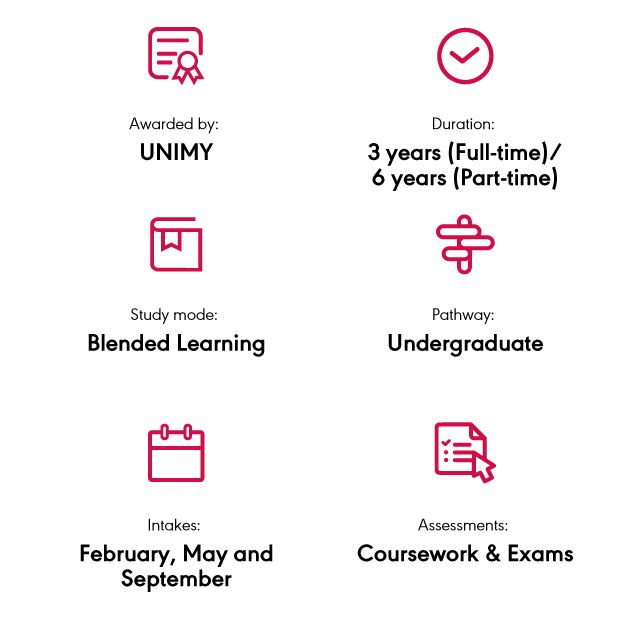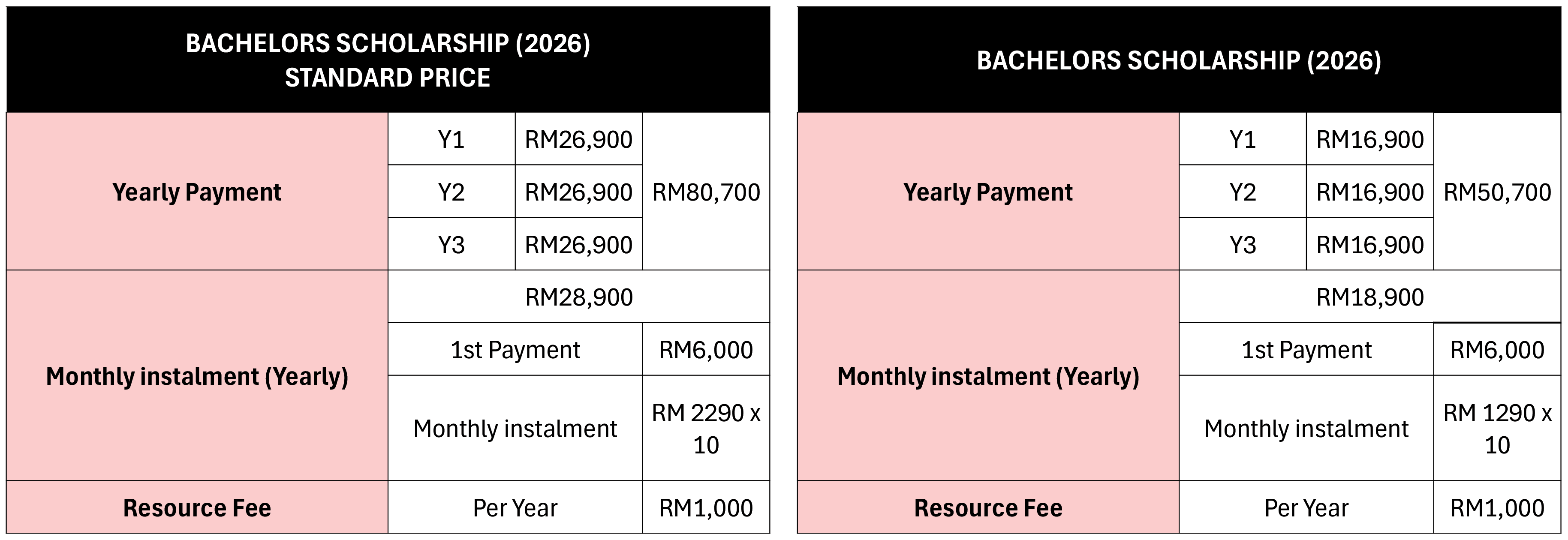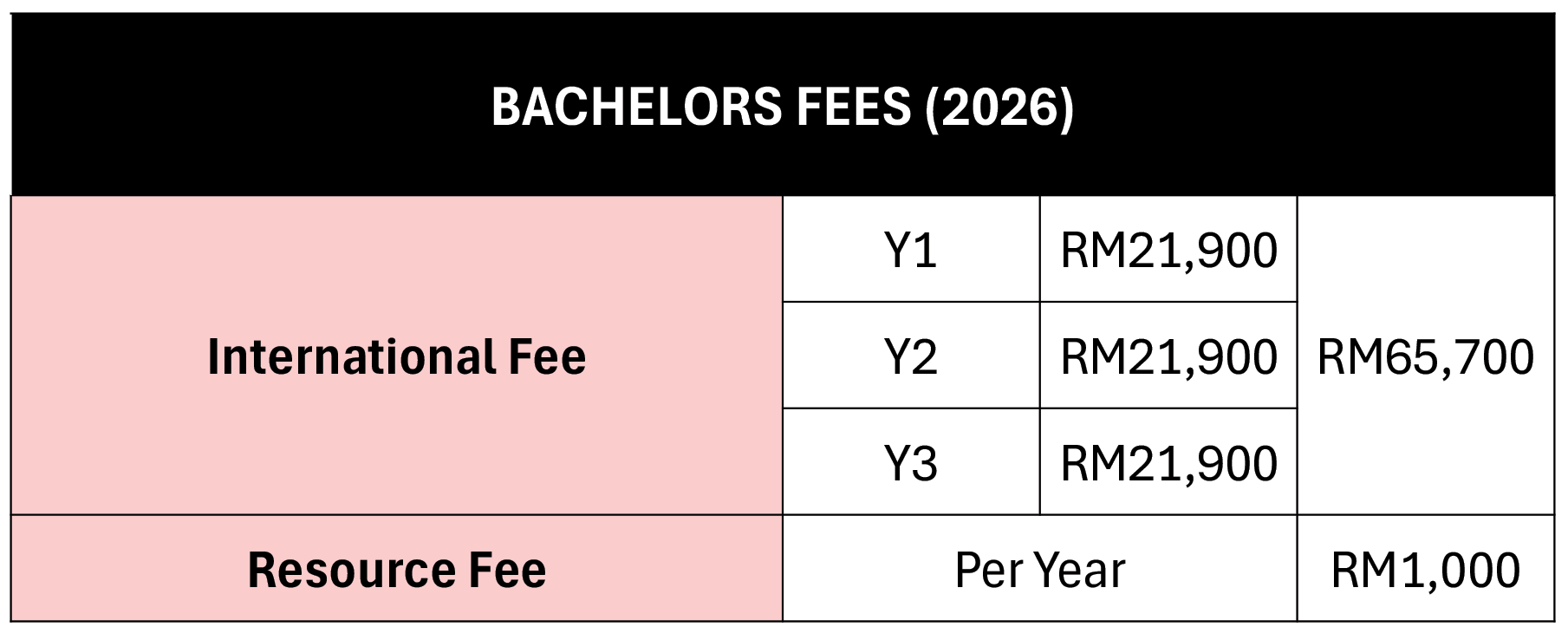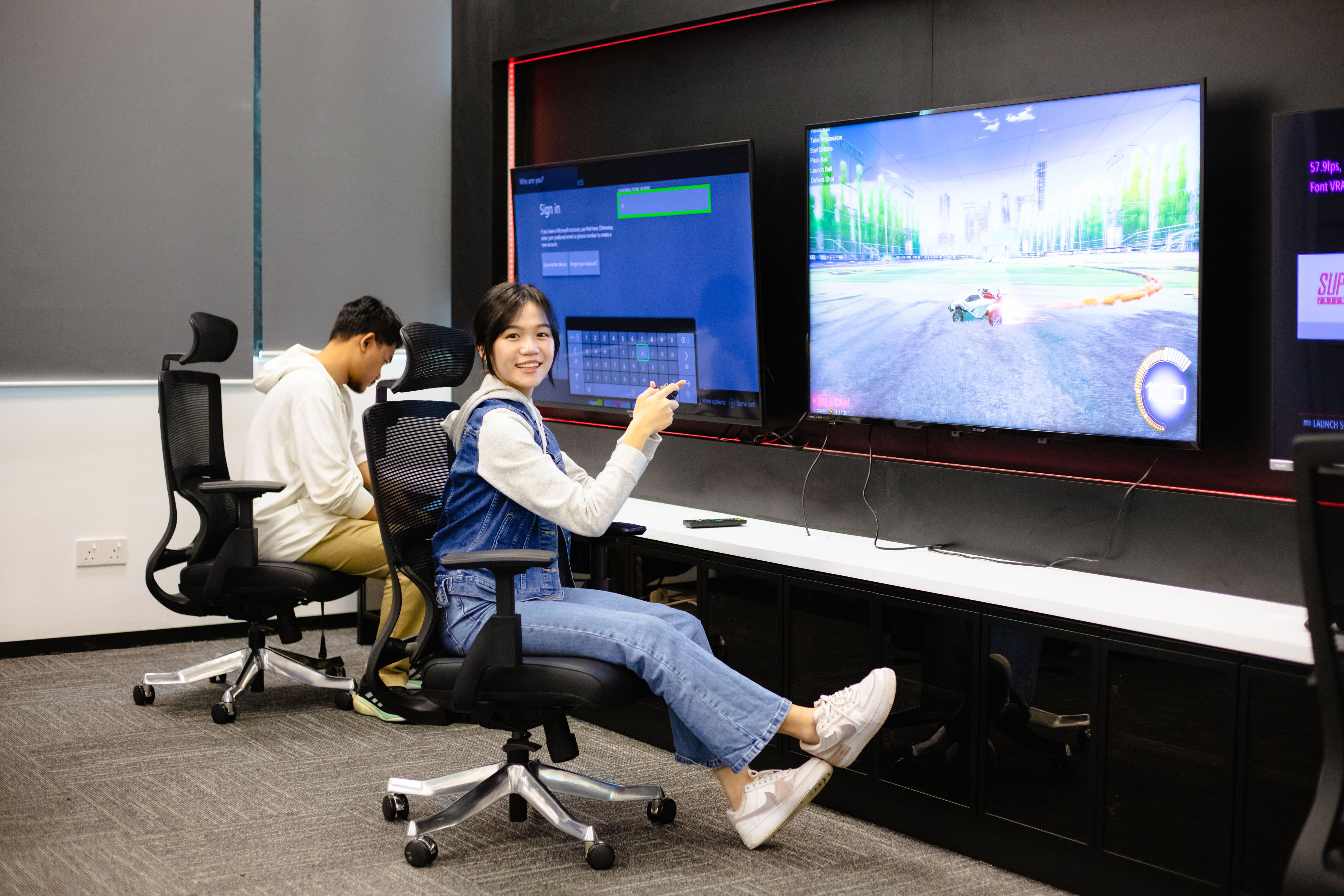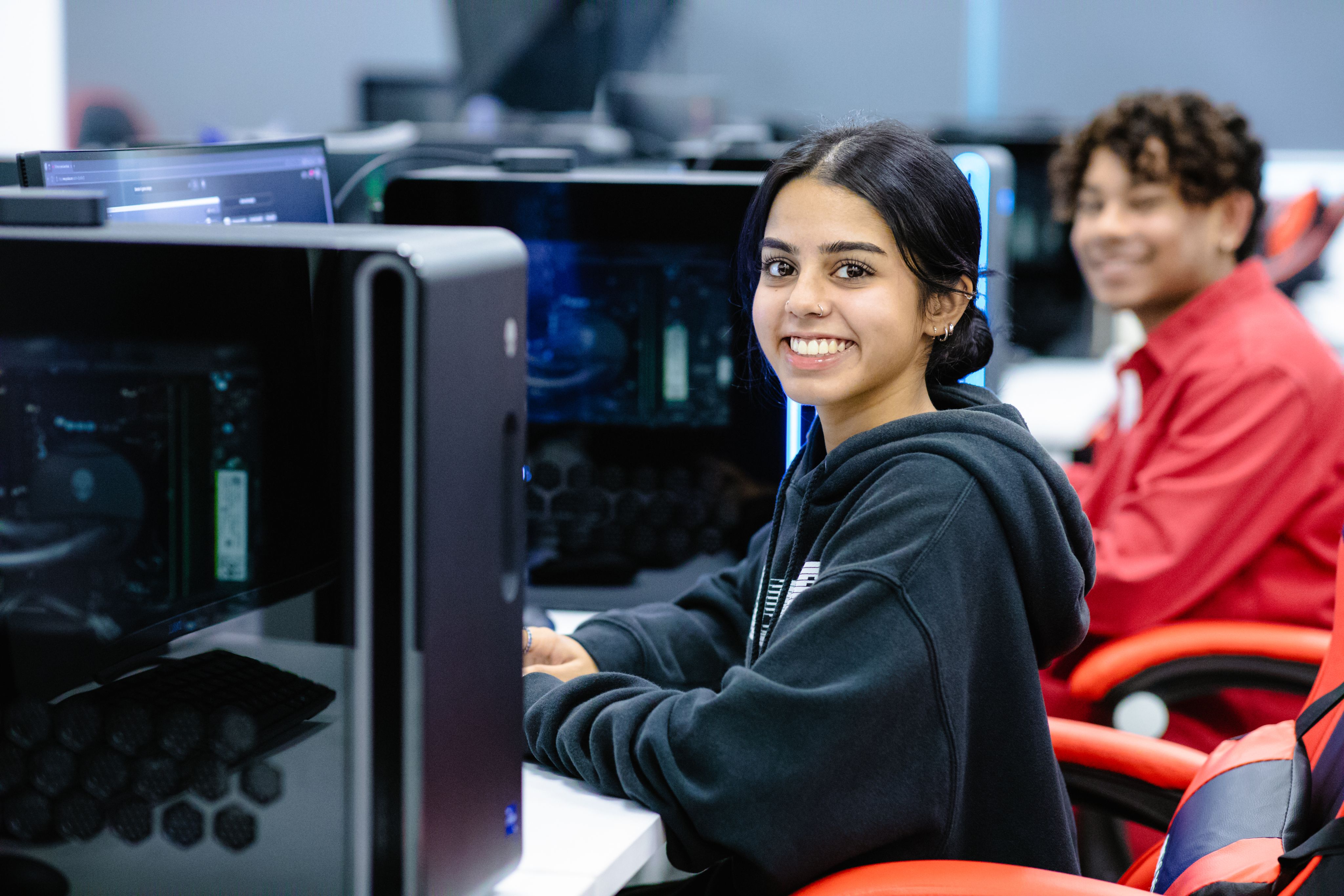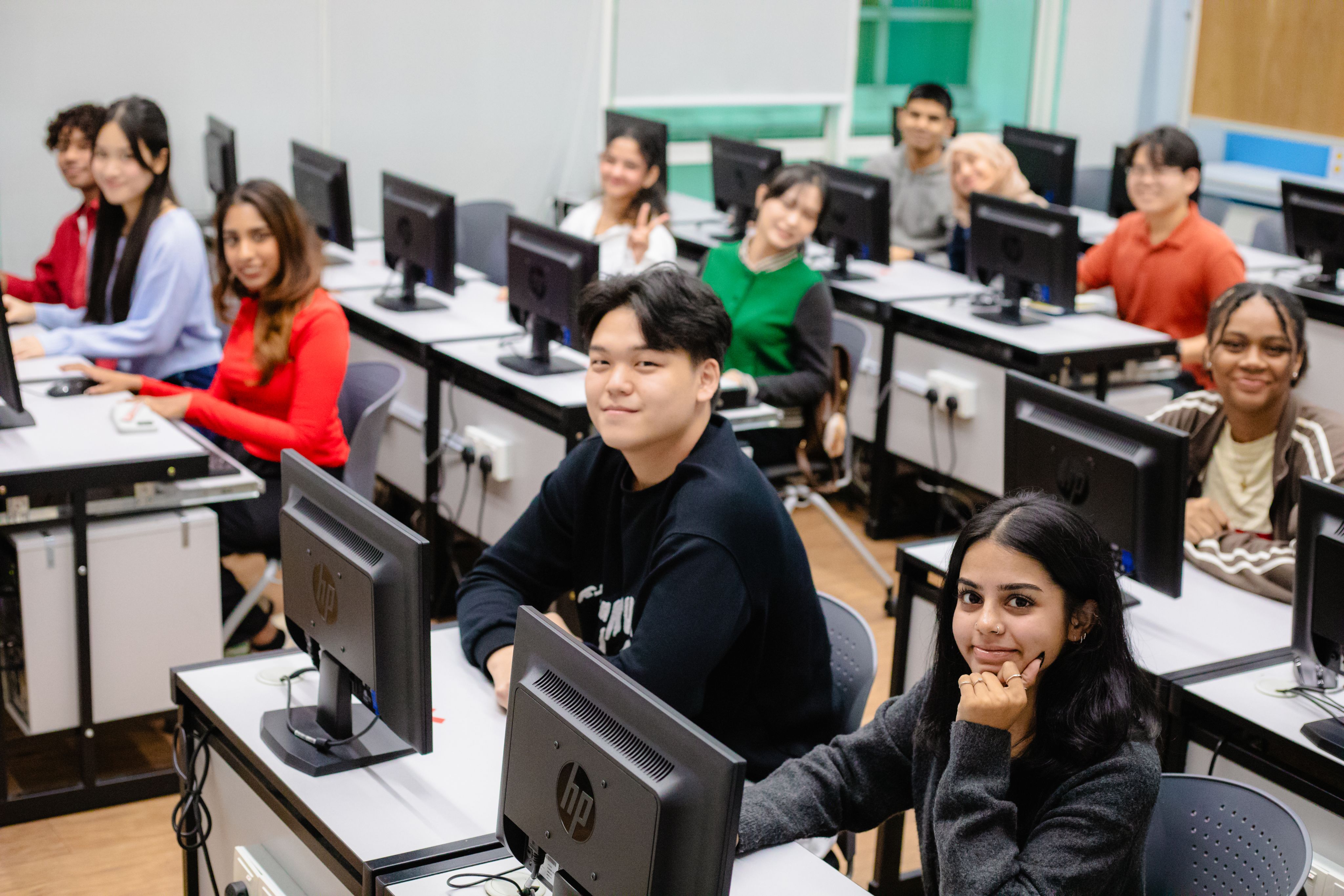Bachelor of
Game Development (Game Technology) with Honours
University Malaysia of Computer
Science & Engineering (UNIMY)

Here’s the Course Overview
Ready to turn your passion for gaming into a thriving career? UNIMY's Bachelor of Game Development (Game Technology) with Honours equips you with the comprehensive knowledge and practical skills to excel in the exciting world of game development.
This game development degree goes beyond the basics, providing a deep dive into game engine architectures, 3D modeling, AI, and multiplayer development. You'll not only gain technical expertise but also cultivate creativity, critical thinking, and a professional mindset, preparing you for success in this dynamic and competitive gaming industry.
Course Entry Requirements
- STPM – Pass with at least two subjects with minimum CGPA of 2.00; or
- A pass in A Level with at least Grade D in any 2 subjects; or
- Foundation programme with minimum CGPA of 2.00; or
- A related Diploma with a minimum CGPA of 2.00; or
- Any equivalent qualifications recognised by the Malaysian Government.
and
- Interview - Pass an interview (online / virtual / conventional); or
- Submission of your portfolio
Why choose UNIMY?
- In-Depth Curriculum: Master core game development concepts, including game engine architectures, 3D modeling, AI, and multiplayer development.
- Real-World Experience: Gain hands-on skills through practical training, workshops, and industry-based projects that simulate real-world scenarios.
- Cutting-Edge Technology: Learn using the latest IR4.0 technologies, preparing you for the future of gaming.
- Expert Faculty: Learn from experienced instructors with expertise in their respective fields.
- Industry Connections: Benefit from partnerships with leading companies, opening doors to internships, industry visits, and networking opportunities.
- Diverse Career Paths: Explore a wide range of career opportunities within the game development industry.
- Launch Your Game Dev Career: Gain the skills and experience you need to launch a successful career in game technology.

COURSE MODULES
Year 1
- Fundamental of Programming
- Digital Illustration
- Contemporary Graphic Design
- Academic Writing
- Digital Graphic Design
- Game Programming
- Database
- Fundamentals of Game Technology
- Principles of Gameplay
- Characters Design
- Dynamic Web Systems Development
- Fundamentals of Creative Professionals
Year 2
- Digital Visual Effect
- 3D Modelling and Animation
- User Experience and Interface (UX and UI)
- Game Level Design
- 2D Game Development
- Mathematics and Logic for Games
- Experimental Media and Interface
- 3D Game Development
- Game Physics
- Game Artificial Intelligence
- Game Engine Architecture
- Professional Communication
Year 3
- Mobile Game Programming
- Game Production and Publishing
- Third Language
- Computer Game Development Project
- Design Thinking
- Final Year Project I & II
- Industrial Training
MPU Modules
- New Venture Creation
- Appreciation of Ethics and Civilisation (Malaysian students)
- Malay Communication 2 (International students)
- Integrity and Anti-Corruption
- Philosophy and Current Issues
- Community Service
- National Language A (for students without a Credit in Bahasa Melayu SPM)
TUITION FEES
You Might Also Like These Courses
Bachelor of Multimedia (Interactive Media)
with Honours
Whether you dream of shaping immersive game worlds, creating dazzling animations, driving digital marketing campaigns, or developing innovative web experiences, this course opens the door to endless possibilities.
Bachelor of Computer Science with Honours
You’ll develop your creative and analytical thinking skills while mastering the design of algorithms and data structures. Through hands-on projects, you’ll have the opportunity to create impactful software solutions and contribute to technological advancements that shape the world.
Bachelor of Software Engineering with Honours
You will become proficient in programming languages such as Java, Python, C++, and JavaScript, empowering you to create robust and scalable software solutions. You will also master system design, web development, and database management, preparing you to build dynamic web applications and handle data effectively.

